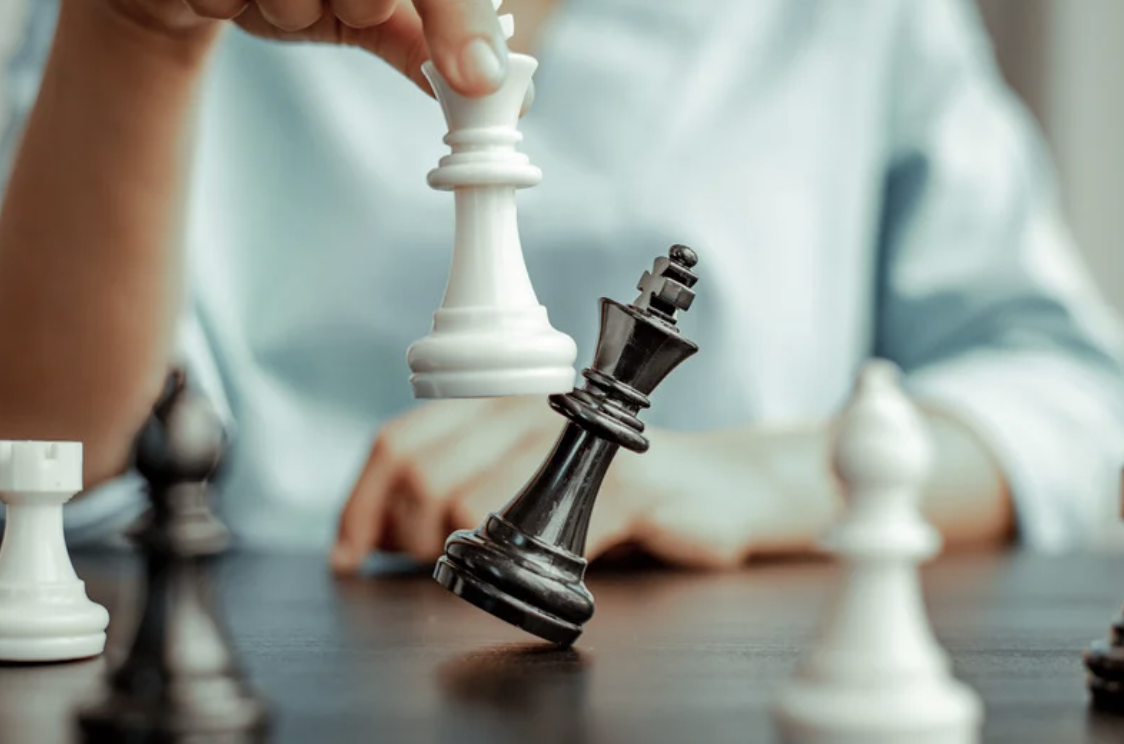How Chess Can Make You Better at Forensic Analysis!
How Chess Can Make You a Better at Forensic Analysis!

Chess is a game that has been cherished for centuries. Its intricate strategies and tactical moves have captivated players of all ages. But did you know that chess can actually make you better at being a forensic analyst? That’s right! The skills and thinking processes that are honed while playing chess can be directly applied to the field of forensic analysis, helping analysts improve their problem-solving abilities, decision-making skills, and analytical thinking. In this article, we will explore the fascinating connection between chess and forensics, and how embracing this ancient game can enhance your abilities as a forensic analyst.
Understanding the Connection Between Chess and Forensics
At first glance, it may seem unlikely that a game played on a board of black and white squares could have any relevance to the complex world of forensic analysis. However, upon closer examination, one can see the striking parallels between the two. Chess requires players to think critically, assess positions, strategize, and anticipate the opponent’s moves – all skills that are indispensable for forensic analysts. The ability to analyze evidence, uncover patterns, and make informed decisions are crucial components of both chess and forensic analysis.
Moreover, chess demands a high level of concentration and focus. The game forces players to examine multiple possibilities and calculate the potential outcomes of each move. Similarly, forensic analysis requires meticulous attention to detail and the ability to consider various scenarios before arriving at a conclusion. By engaging in chess, forensic analysts can train their minds to remain focused and to think analytically, which directly translates into improved performance in their field.
Furthermore, the strategic nature of chess can be directly applied to forensic analysis. In chess, players must plan their moves ahead, considering the potential consequences and adapting their strategies accordingly. Similarly, forensic analysts must develop a well-thought-out approach to examining evidence, taking into account the different paths that their investigation may take and adjusting their methods accordingly. Just as a chess player must be flexible and adapt to their opponent’s moves, a forensic analyst must be able to adapt to new information and adjust their investigative techniques accordingly.
Additionally, both chess and forensic analysis require a deep understanding of patterns and the ability to recognize them. In chess, players must be able to identify recurring patterns on the board, such as common opening moves or specific tactics. Similarly, forensic analysts must be able to identify patterns in evidence, such as recurring modus operandi or consistent behavior patterns of suspects. By honing their pattern recognition skills through chess, forensic analysts can become more adept at identifying relevant patterns in their investigations, leading to more accurate and efficient analysis.
Moreover, the competitive nature of chess can be seen as a reflection of the competitive nature of forensic analysis. In chess, players strive to outwit and outmaneuver their opponents, constantly seeking to gain an advantage. Similarly, forensic analysts often find themselves in a race against time and competing with other investigators to solve a case. The competitive mindset developed through chess can help forensic analysts thrive in high-pressure situations, enabling them to think strategically and make quick, well-informed decisions.
In conclusion, the connection between chess and forensic analysis goes beyond the surface level. The critical thinking, concentration, strategic planning, pattern recognition, and competitive mindset required in chess directly translate to the skills needed in forensic analysis. By engaging in the game of chess, forensic analysts can enhance their abilities and improve their performance in solving complex cases. So, the next time you see a chessboard, remember the hidden connection it holds with the world of forensic analysis.
Developing Investigative Skills Through Chess
In addition to honing analytical thinking, chess can also help forensic analysts develop their investigative skills. In chess, players must carefully analyze the positions of each piece on the board, identify weaknesses, and develop strategies to exploit them. This process mirrors the investigation phase in forensic analysis, where analysts gather evidence, examine it closely, identify patterns, and use them to build a compelling case.
Furthermore, chess provides an excellent platform for improving critical thinking skills. As players navigate the chessboard, they must evaluate multiple possibilities, anticipate their opponent’s moves, and make calculated decisions based on limited information. Similarly, forensic analysts often encounter complex scenarios where they must assess various hypotheses, consider alternative explanations, and make sound judgments based on the available evidence.
Chess also teaches the importance of patience and persistence. Players must often endure long and challenging games, where a single mistake can cost them the victory. This virtue directly transfers to the world of forensic analysis. Sometimes, the investigation process can be time-consuming and require meticulous attention to detail. By playing chess, forensic analysts can cultivate the patience and determination necessary to thoroughly examine evidence and uncover hidden truths.
Moreover, chess fosters creativity and strategic thinking. Successful chess players are not only skilled at analyzing the current state of the game but also at envisioning future moves and planning ahead. This ability to think strategically is invaluable in forensic analysis, where analysts must anticipate the actions of criminals and stay one step ahead. By engaging in chess, forensic analysts can enhance their ability to think outside the box, consider multiple perspectives, and develop innovative investigative strategies.
Furthermore, chess can improve problem-solving skills. Players often encounter complex situations where they must navigate through a maze of possibilities to find the best move. This skill directly translates to forensic analysis, where analysts must tackle intricate puzzles and connect the dots to solve crimes. By regularly engaging in chess, forensic analysts can sharpen their problem-solving abilities and become more adept at unraveling complex mysteries.
Lastly, chess promotes concentration and focus. During a game, players must maintain a high level of concentration to analyze the board, calculate potential moves, and avoid overlooking critical details. This level of focus is equally crucial in forensic analysis, where even the smallest piece of evidence can hold significant importance. By immersing themselves in chess, forensic analysts can train their minds to stay focused for extended periods, enabling them to delve deep into investigations and extract valuable insights.

Corporate accountants make great detectives because they are skilled in tracing financial transactions and identifying any irregularities in the accounts. They are trained to scrutinize every detail, detect unusual patterns, and follow the money trail to find the source of discrepancies or fraud. This is why they are often hired to review a company’s financials, find missing transactions, and track bank transactions. Professionals with an accounting degree and training in forensic analysis have a keen eye for details and a thorough understanding of financial records, which make them excellent detectives in the financial world.
Chess as a Method for Improving Forensic Analytic Problem Solving
Problem-solving is an integral part of forensic analysis. Analysts are faced with complex puzzles that require logical thinking and creativity to solve. Enter chess – a game that is essentially one big problem to be solved. Chess, a game that has been played for centuries, is not only a recreational activity but also a powerful tool for honing problem-solving skills. With each move, players must assess the situation, identify the best course of action, and adapt their strategies accordingly. This constant exercise in problem-solving directly translates into improved abilities for forensic analysts.
Chess teaches individuals to think critically and consider all possibilities before making a move. It cultivates the ability to analyze a complex situation, evaluate potential outcomes, and make informed decisions. These skills can be invaluable in the world of forensic analysis, where missing one crucial piece of evidence or overlooking a detail can have significant consequences.
By regularly engaging in chess, forensic analysts can train their minds to systematically approach problems and develop innovative solutions. The game’s emphasis on strategy and foresight helps analysts become more adept at recognizing patterns, identifying connections, and thinking several steps ahead.
Furthermore, chess offers an opportunity to improve concentration and mental stamina. The game demands sustained focus and requires players to consider multiple factors simultaneously. This ability to concentrate deeply for extended periods is crucial for forensic analysts, who often need to sift through vast amounts of information, connect seemingly unrelated data points, and maintain focus during lengthy investigations.
Chess also fosters creativity and originality in problem-solving. While the game follows specific rules, there are countless possible moves and strategies that players can employ. This freedom to explore different approaches encourages analysts to think outside the box and consider unconventional solutions to complex problems.
In addition to its direct impact on problem-solving skills, chess can also enhance communication and collaboration among forensic analysts. The game provides a common ground for individuals to engage in friendly competition, exchange ideas, and learn from each other’s strategies. This collaborative environment promotes teamwork and the sharing of knowledge, ultimately benefiting the entire forensic analysis community. Overall, chess serves as a powerful method for improving forensic analytic problem-solving. Its ability to develop critical thinking, enhance concentration, foster creativity, and encourage collaboration makes it an invaluable tool for forensic analysts seeking to sharpen their skills and excel in their field.
Using Chess to Train Your Brain for Forensic Analysis
Chess, a game that has captivated minds for centuries, holds a unique power to train and sharpen the brain. Its intricate moves and strategic maneuvers have been proven to enhance cognitive function, boost memory, and foster problem-solving abilities. As the world of forensic analysis demands mental agility and analytical thinking, the application of chess in this field becomes increasingly intriguing.
Scientific studies have delved into the impact of chess on the brain, revealing its profound benefits for forensic analysts. By engaging in the game, professionals can embark on a journey that challenges their cognitive abilities, hones their pattern recognition skills, and enhances their strategic planning capabilities. The mental workout provided by chess serves as a catalyst for improving the analytical prowess of forensic analysts, enabling them to dissect evidence with greater precision and draw accurate conclusions.
Forensic analysis, with its complex mysteries and enigmatic puzzles, requires a keen eye for detail and an unwavering commitment to unraveling the truth. Integrating chess into the routine of forensic professionals can prove to be a transformative practice. The game’s intricate calculations and strategic thinking mirror the intricate web of evidence that forensic analysts encounter. By immersing themselves in the world of chess, professionals can cultivate the mental acuity needed to navigate through convoluted cases, unmask hidden connections, and unlock the secrets that lie within.
Chess, as a training ground for the brain, offers a multitude of advantages. It fosters critical thinking, allowing forensic analysts to approach each case with a fresh perspective and an open mind. The game’s emphasis on strategy cultivates the ability to think several steps ahead, a skill that proves invaluable in the field of forensic analysis. Moreover, chess nurtures patience, a virtue that is essential when meticulously piecing together fragments of evidence to form a coherent narrative.
As forensic analysts immerse themselves in the world of chess, they embark on a journey of self-improvement and mental fortitude. The game becomes a partner in their quest for truth, a companion that sharpens their intellect and refines their analytical abilities. It serves as a constant reminder of the power of the human mind and its capacity for growth and adaptability.
Chess stands as a formidable tool for training the brain in the realm of forensic analysis. Its ability to enhance cognitive function, improve memory, and foster problem-solving skills makes it an invaluable asset for forensic professionals. By integrating chess into their routine, these individuals embark on a transformative journey, equipping themselves with the mental acuity needed to unravel the intricacies of complex cases and uncover the truth that lies beneath the surface.

Learn How Chess Can Help Forensic Analysts Make Smarter Decisions
In the world of forensic analysis, the ability to make wise decisions quickly is of utmost importance. One wrong move and an investigation can take a completely different turn. Chess can play a pivotal role in training forensic analysts to make smarter decisions under pressure. Chess forces players to think strategically and consider the consequences of each move. By regularly engaging in this mental exercise, forensic analysts can fine-tune their decision-making skills in a controlled environment. The practice of analyzing complex positions and weighing the pros and cons of different moves translates into improved judgment when faced with real-life forensic challenges.
When playing chess, forensic analysts learn to anticipate their opponent’s moves and develop counter-strategies. This ability to think ahead and visualize different scenarios is invaluable in the field of forensic analysis. Just as chess players study their opponents’ previous games to understand their strategies, forensic analysts analyze past cases and learn from them to develop effective investigative techniques.
Furthermore, chess teaches patience and perseverance. In a game that can last for hours, players must remain focused and calm, even when faced with setbacks. Similarly, forensic analysts often encounter obstacles and setbacks during investigations. By cultivating a resilient mindset through chess, analysts can approach challenges with determination and adaptability.
Chess also enhances critical thinking skills. Players must evaluate multiple options and consider various factors before making a move. This analytical mindset directly translates into the forensic field, where analysts must carefully evaluate evidence, consider alternative hypotheses, and make informed decisions based on the available information.
Moreover, chess fosters creativity. In order to outsmart their opponents, players often need to think outside the box and come up with unconventional strategies. This ability to think creatively is essential for forensic analysts, who must constantly find innovative ways to solve complex cases and uncover hidden truths. Additionally, chess provides an opportunity for collaboration and teamwork. Many chess tournaments involve team competitions, where players work together to devise winning strategies. This collaborative aspect of chess mirrors the teamwork required in forensic analysis, where analysts often collaborate with law enforcement agencies, legal professionals, and other experts to solve crimes and present compelling evidence in court.
Lastly, playing chess can be a stress-relieving activity for forensic analysts. The intense focus required during a game helps them temporarily escape the pressures of their work and recharge their minds. This mental rejuvenation can lead to increased productivity and improved decision-making abilities when they return to their forensic analysis tasks.
Chess as a Tool for Forensic Finance
Forensic analysis requires a keen eye for detail and the ability to uncover hidden patterns and connections. Chess, with its intricate board and interplay of pieces, provides an ideal training ground for developing and strengthening these analytical abilities. Chess can cultivate the capacity to observe minute details and consider their implications. The game teaches players to think logically, and systematically, and to recognize patterns that others might miss. Forensic analysts who embrace chess as a training tool sharpen their powers of observation and enhance their abilities to connect seemingly unrelated pieces of evidence, ultimately leading to more accurate and comprehensive analyses.

Unlocking the Benefits of Chess for Forensic Analysts
Now that we have explored the significant ways in which chess can benefit forensic analysts, it is essential to understand how to fully unlock these benefits in practice.
Firstly, it is crucial for forensic analysts to actively engage in chess on a regular basis. By integrating chess into their daily routine, analysts can continuously improve their analytical thinking, problem-solving abilities, and decision-making skills. Consistency is key to unlocking the full potential of chess. Secondly, it is essential to reflect on each game and identify areas for improvement. Chess provides countless learning opportunities, even in defeat. By analyzing their gameplay, forensic analysts can identify weaknesses and strategize to overcome them, applying the same approach to their work as forensic analysts.
Finally, it can be beneficial for forensic analysts to join chess clubs or participate in chess tournaments. Engaging with other chess players allows for the exchange of ideas, strategies, and the opportunity to learn from experienced players. The camaraderie and competition fostered in chess clubs can further enhance learning and development.
Capital Expenditures vs Revenue Expenditures

When it comes to accounting for expenses, differentiating between capital expenditures and revenue expenditures is essential. Capital expenditures refer to the investments made in long-term assets, such as property, plant, and equipment, with benefits expected to extend beyond the current accounting period. Revenue expenditures, on the other hand, are the day-to-day expenses necessary for a company’s operations. Recognizing the distinction between these two types of expenditures is vital for accurate financial reporting and understanding a company’s spending patterns.
CONCLUSION
Chess is, undeniably, a powerful tool for enhancing the analytical thinking abilities of forensic analysts. By engaging in this ancient game, forensic analysts can strengthen their problem-solving skills, improve decision-making, and develop a razor-sharp focus on detail. Chess is not just a game – It’s a training ground for the mind. By embracing chess, forensic analysts can unlock their full potential and become even better at what they do. So, why not start playing today and experience the transformative power of chess in your forensic analysis career?





Stay In Touch